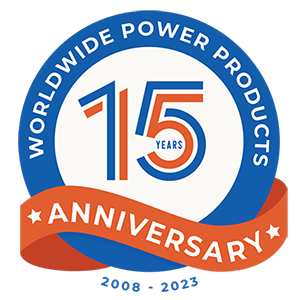Germany’s Phase-Out of Nuclear Power Plants: What Does It Mean for You?
Quick question: What did the light bulb say to the generator? “I really get a charge out of you!”
This joke may be old, but its kernel of truth makes it a winner, no matter what. I came across it recently on the same day that I read an article about Germany’s phasing out of its nuclear power plants. It made me wonder whether other countries are doing the same, and how that decision might impact our customers. Here’s what I found out:
In 2011, Germany announced it was phasing out its 17 nuclear power plants in response to the Fukushima nuclear disaster in Japan, replacing them with wind and solar sources. The following year, German industry group BDEW announced it would construct or update 84 gas- or coal-fired power plants over the coming years. These messages may be conflicting, but they agree on one thing― nuclear is out, for Germany, at least.
In Japan things are less certain. After the Fukushima nuclear reactor disaster (following the 2011 earthquake and tsunami), the previous prime minister announced a plan to phase out nuclear power. Then, new Prime Minister Shinzo Abe reportedly developed a plan that reversed the decision. In November 2013, several key Japanese leaders urged Prime Minister Abe to phase nuclear reactors out, after all. (Confused yet? Imagine how the Japanese people must feel.)
In the USA, things aren’t much clearer. The USA is the world’s largest producer of nuclear power (30% of global production, per the World Nuclear Association, or WNA). However, although companies are building more plants (five under construction as of this year, mostly in the South), other firms are taking them offline just as fast.
“Intermittent” (a euphemism for less-reliable) power sources such as wind and solar are coming online at an increasingly rapid pace. Add to these new resources the uptake in fracking, which has made natural gas more accessible, and things aren’t looking too good for nuclear in the USA.
As CNN reported earlier this month, former Nuclear Regulatory Commission member Peter Bradford says the industry “got hit between the eyes by a number of things happening at once.” Of course, many countries―especially in Asia―are still building nuclear power plants. Per the WNA, 72 are under construction, right now.
The energy outlook may be unclear, but of two things, I am fairly certain. First, the continuing debate about which fuel source is the best choice to power the USA’s future―and that of the world―will result in more challenges to already strained power grids, as companies attempt to accommodate a variety of energy supplies.
Already, the power grid―an interconnected web of power plants, substations, transformers and wires―is in a precariously fragile state. Every day, 500,000 Americans lose power for an hour or more, and electricity outages cost the economy $80 billion to $188 billion per year. (Massoud Amin, a grid security expert and professor of electrical and computer engineering at the University of Minnesota, confirmed these statistics in a March 2013 AP report.)
Second, no matter what happens, WPP will be waiting in the wings to help businesses, industrial concerns and property owners Power On during outages. Our rental fleet has been averaging an 80-90% occupancy rate, so we recently added more generators―portable, quiet, energy efficient units everyone will appreciate. If you’d like to learn more, just ask!











